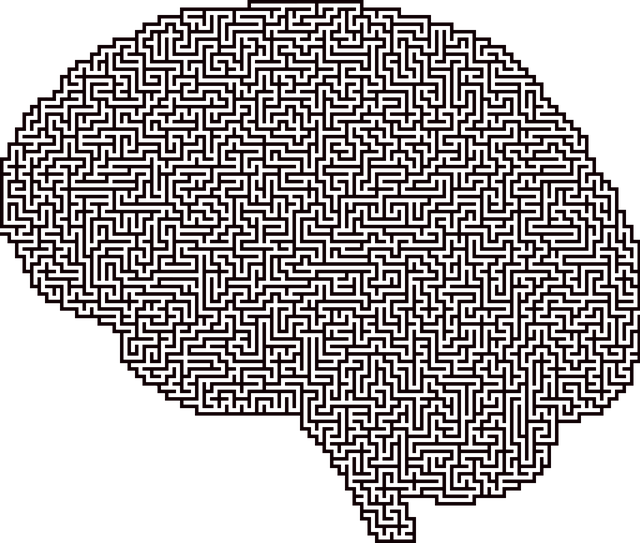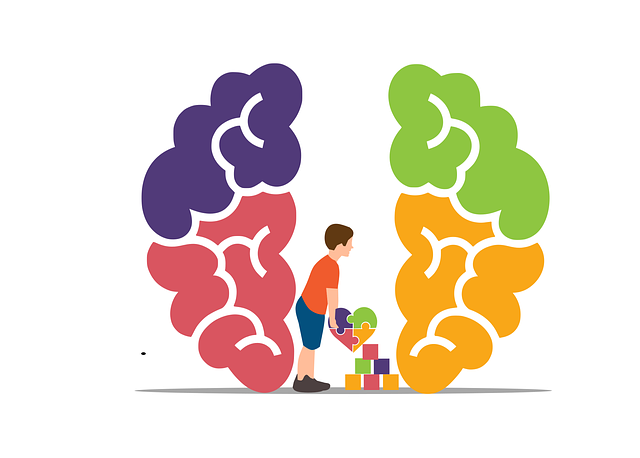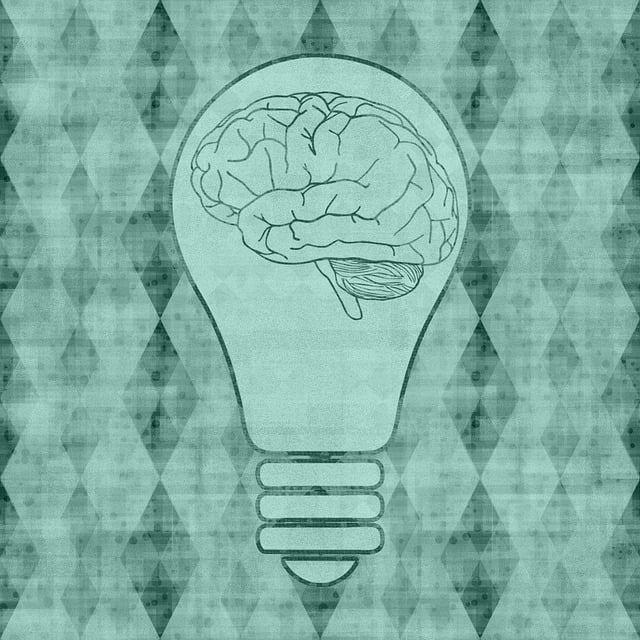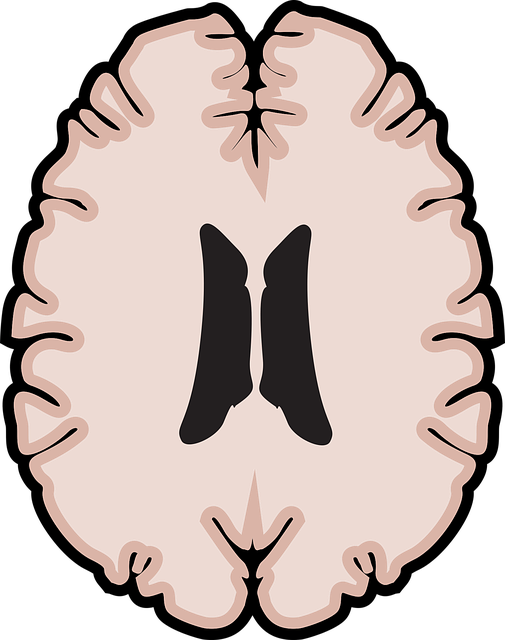In Colorado Springs, accurate diagnosis of gender identity disorders like gender dysphoria remains challenging due to symptom overlap with other mental health conditions. To improve diagnostic accuracy, healthcare professionals are integrating holistic approaches such as mental wellness coaching into traditional therapy. These innovative techniques, combined with advanced training and digital tools, enhance self-esteem, mood management, and cultural sensitivity, leading to more precise diagnoses and improved outcomes for transgender and non-binary individuals seeking specialized therapy in Colorado Springs. Public awareness campaigns further reduce stigma, promoting understanding and inclusive care.
Mental illness diagnosis accuracy is a critical issue, with misdiagnosis rates alarmingly high. This article explores efforts to improve diagnostic precision, focusing on innovative strategies and specialized therapies like Colorado Springs Gender Identity Therapy. We delve into understanding the challenges behind misdiagnoses, the unique role of gender identity therapy, and patient-centric approaches. Additionally, we highlight training programs enhancing healthcare professional skills in Colorado Springs. These initiatives underscore a comprehensive approach to transforming mental health diagnosis.
- Understanding the Challenges: Misdiagnosis Rates in Mental Health
- The Role of Gender Identity Therapy in Accurate Diagnosis
- Innovative Approaches to Enhance Diagnostic Accuracy
- Training and Education for Healthcare Professionals in Colorado Springs
- Patient-Centric Strategies for Improving Diagnostic Outcomes
Understanding the Challenges: Misdiagnosis Rates in Mental Health

In the realm of mental health, misdiagnosis rates remain a persistent challenge, particularly for individuals seeking Colorado Springs gender identity therapy. While advancements in understanding various mental illnesses have been made, clinical practitioners face intricate tasks when assessing and diagnosing conditions like gender dysphoria or other complex identities. This is often attributed to the subjective nature of symptoms, which can overlap across multiple disorders, leading to potential missteps in diagnosis.
The quest for improvement involves a multifaceted approach. Enhancing diagnostic accuracy requires not only advanced training for healthcare professionals but also embracing innovative techniques. For instance, mental wellness coaching programs development has emerged as a valuable tool. By incorporating these programs alongside traditional therapy, individuals can work on self-esteem improvement and mood management, leading to more precise diagnoses. This integrated care model ensures that patients receive holistic support tailored to their unique needs, ultimately reducing misdiagnosis rates and fostering better outcomes in mental wellness.
The Role of Gender Identity Therapy in Accurate Diagnosis

In recent years, there has been a growing recognition of the impact that gender identity plays in mental health diagnoses. Colorado Springs Gender Identity Therapy has emerged as a crucial component in improving accuracy and accessibility of diagnosis for individuals experiencing emotional distress related to their gender identity. This specialized therapy focuses on understanding and addressing the unique challenges faced by transgender and non-binary individuals, who often navigate complex social and psychological factors that can affect their mental well-being. By fostering a safe and supportive environment, therapists facilitate exploration and expression of one’s true self, which is essential for accurate diagnosis.
The integration of Colorado Springs Gender Identity Therapy into mental healthcare practices underscores the importance of cultural sensitivity in diagnostic processes. It emphasizes the need for professionals to be equipped with knowledge about gender diversity, enabling them to provide more inclusive care. Additionally, public awareness campaigns development can play a significant role in promoting understanding and reducing stigma associated with gender identity issues. These initiatives support emotional healing processes by encouraging open conversations and fostering communities that embrace diverse identities, ultimately contributing to more accurate mental illness diagnoses.
Innovative Approaches to Enhance Diagnostic Accuracy

In the quest for enhanced mental illness diagnosis accuracy, innovative approaches are reshaping the landscape of healthcare in places like Colorado Springs Gender Identity Therapy. Beyond traditional methods, professionals are now incorporating advanced therapeutic techniques and technology to improve assessment strategies. For instance, integrating digital tools for remote therapy sessions has expanded access to care while allowing for more nuanced data collection, which aids in diagnosis.
Moreover, healthcare provider cultural competency training plays a pivotal role in improving diagnostic accuracy. By equipping practitioners with the skills to navigate diverse cultural contexts, these efforts mitigate potential biases and misunderstandings. Combined with burnout prevention initiatives, which enhance provider well-being, and ongoing mental illness stigma reduction efforts, these strategies collectively contribute to a more inclusive and effective healthcare system tailored to meet the unique needs of each individual.
Training and Education for Healthcare Professionals in Colorado Springs

In Colorado Springs, healthcare professionals are undergoing enhanced training and education programs focused on improving mental illness diagnosis accuracy. These initiatives prioritize advanced learning in diverse areas, including Colorado Springs gender identity therapy, self-esteem improvement, and resilience building. The goal is to ensure that practitioners are equipped with the latest research and techniques to provide more precise diagnoses and effective treatment plans.
The programs emphasize not only clinical knowledge but also practical skills for stress management. By focusing on these aspects, healthcare providers in Colorado Springs are better prepared to navigate complex mental health cases, leading to improved patient outcomes and enhanced satisfaction among both professionals and those seeking therapy.
Patient-Centric Strategies for Improving Diagnostic Outcomes

In improving mental illness diagnosis accuracy, patient-centric strategies are transforming healthcare approaches in Colorado Springs Gender Identity Therapy. By prioritizing individual experiences and perspectives, therapists create a safe space for patients to openly discuss symptoms, fears, and personal narratives. This empathetic approach encourages honest communication, enabling mental health professionals to gather more nuanced information crucial for precise diagnoses.
Integrating these patient-focused strategies with evidence-based practices enhances the overall accuracy of mental wellness assessments. For instance, the Mental Wellness Podcast Series Production can provide a platform for sharing recovery stories and educational content, fostering a supportive community. Simultaneously, Risk Management Planning for Mental Health Professionals ensures therapists are equipped to handle diverse cases effectively while safeguarding their well-being. Furthermore, designing innovative Mental Health Education Programs can empower individuals with self-care tools and knowledge, promoting mental health awareness throughout the community.
Mental illness diagnosis accuracy is a multifaceted issue, with misdiagnosis rates highlighting the need for improvement. Integrating Colorado Springs Gender Identity Therapy into diagnostic processes has proven beneficial, addressing unique challenges faced by gender diverse individuals. Innovative approaches, including advanced training and patient-centric strategies, further enhance accuracy. Efforts like these not only improve individual treatment outcomes but also ensure healthcare professionals in Colorado Springs are equipped to provide compassionate, effective care for all mental health patients.














